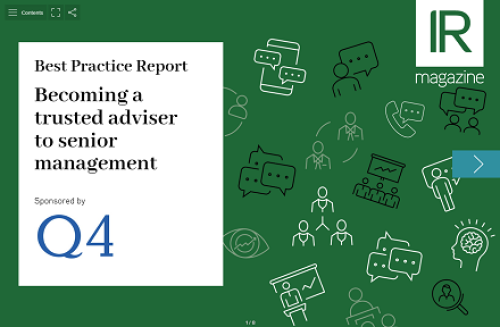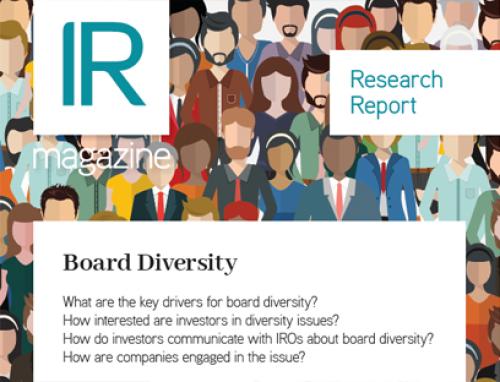Investor relations veteran gives insight into her long career
Catherine James, head of investor relations at Diageo, is to leave the company after 32 years in February 2017. Andrew Holt gets the low-down on a long and distinguished career
What has been the biggest lesson you have learned during your IR career?
That the capital markets work. We get very cynical these days about greed and people looking after their own interests, especially in the finance industry. But my experience is that good investors are looking to help the people who give them money to manage their ambitions, be it retirement or education or philanthropy, and they do this by finding the best companies and helping them grow.
What have been the highs and lows of your career at Diageo?
The highs have been the people: those at Grand Metropolitan [which merged with Guinness to form Diageo] and then Diageo, and the investors and analysts I have had the pleasure to get to know and work with. Business-related, the high was the Seagram acquisition and the subsequent disposal of Pillsbury and Burger King. It made Diageo the leader in premium drinks.
The low is that as we were becoming a truly global company with acquisitions in India, China, Brazil and Turkey, the currencies and the economies of the emerging markets became a serious headwind. I think that confused people as to the validity of the overall strategy.
You have said you see IR as a function of finance. Could you explain the rationale behind this?
Numbers are the language of business and companies communicate through regulated accounting principles. I think IR professionals need to have these capabilities and they are best built through a finance background. But the best IROs will also be able to tell the story of the business in order to communicate the culture and ethos of a company, and this is becoming increasingly important.
What advice would you give someone coming into IR for the first time?
Learn your industry and your business thoroughly; when you are sitting across from an investor or an analyst, that is what he or she wants to know. But also be able to make connections across a wider range of comparisons. That way you will understand where you fit within the investment choices people can make.
Also, not everyone will want to buy into the investment case you are making. Investors come in different types with different objectives. You cannot appeal to all of them so stay true to the investment proposition you have and don’t try to attract everyone at the same time. It really is a marathon, not a sprint.
You have mentioned in IR Magazine that IR professionals are working to a greater accountability and need to perform at an increasingly high level in the future. How do you see this changing the work of the IRO?
I don’t see it changing the way the best IROs work but it will make the divide between those who are transparent in their communications and those who fall short of what investors should expect from them clearer, and I think that will increasingly affect valuation.
What does your future hold?
At the moment, my only post-Diageo plan is to go bowling with my team to say goodbye and then to go sailing in the Caribbean for three weeks. After that I want to learn new industries and see how business is involving in the 21st century as younger entrepreneurs look to blend profit and a positive community impact in achieving their ambitions.










